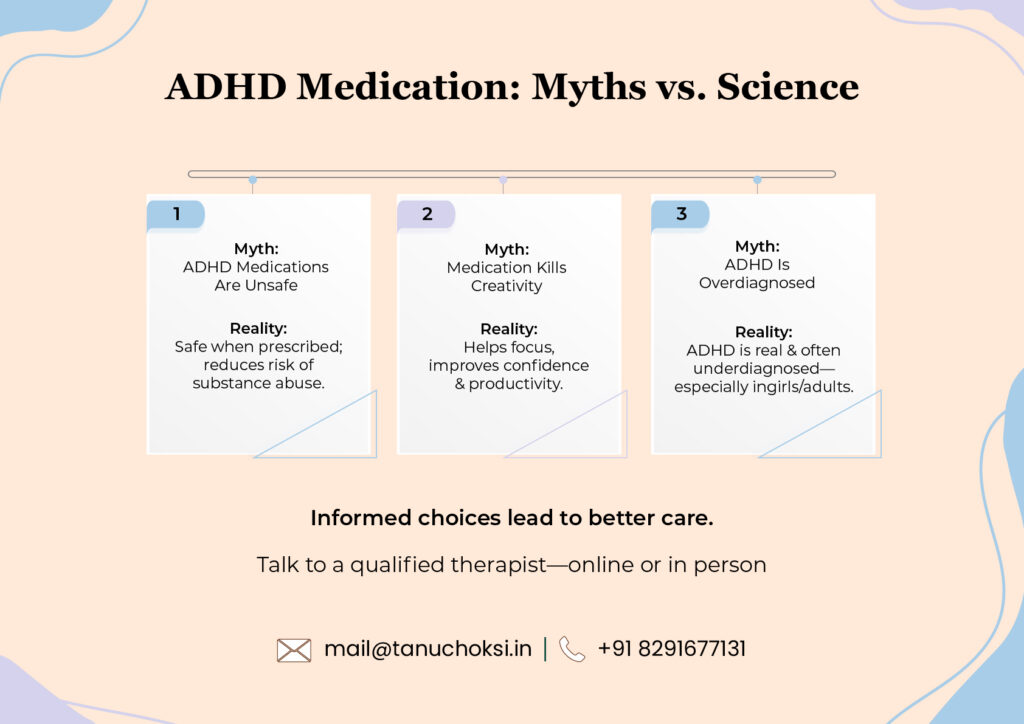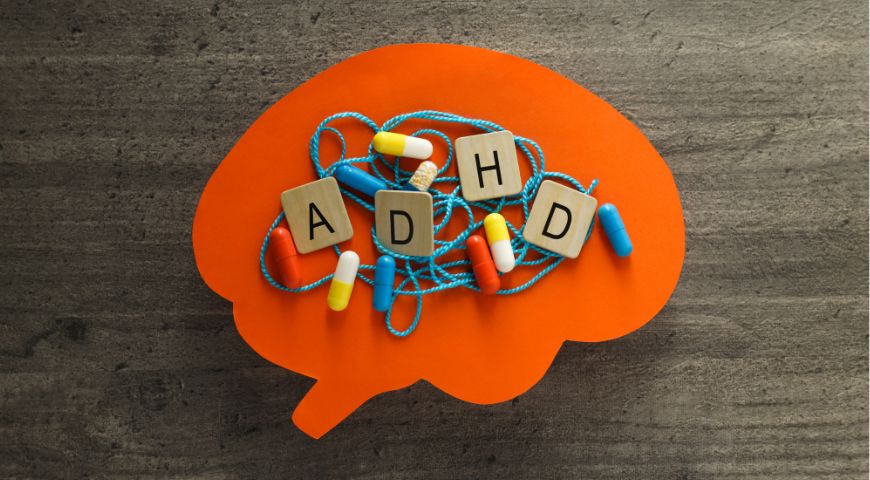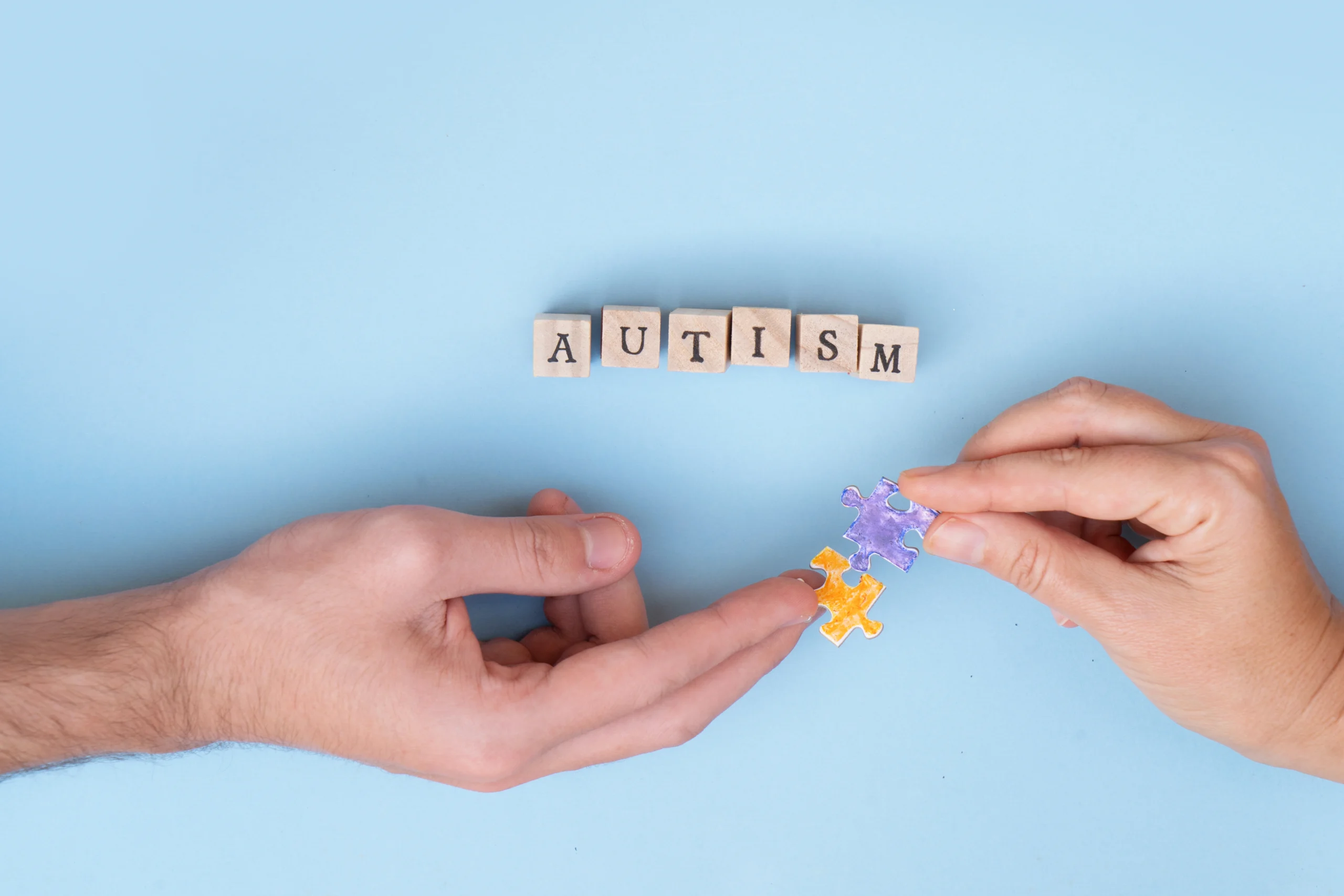As a therapist in Mumbai, I often encounter parents and individuals grappling with the decision to use medication for Attention-Deficit/Hyperactivity Disorder (ADHD).
Recently, public figures have labeled ADHD medications as “poison,” sparking fear and confusion. Such statements can perpetuate myths and deter families from seeking effective treatments.
Let’s explore the common misconceptions surrounding ADHD medications and what scientific research reveals.

1. Myth: ADHD Medications Are Unsafe and Highly Addictive
A prevalent concern is that stimulant medications, like methylphenidate and amphetamines, are dangerous and lead to addiction.

The Reality: When prescribed and monitored by qualified professionals, these medications are considered safe and effective. Extensive research indicates that therapeutic use of stimulants does not increase the risk of substance abuse. In fact, untreated ADHD is associated with a higher risk of developing substance use disorders.
Side effects such as decreased appetite, sleep disturbances, or mood swings can occur but are typically manageable through dosage adjustments or medication changes. Regular follow-ups with a licensed psychologist in India or individual therapist are crucial for monitoring and addressing any adverse effects.
2. Myth: Medication Alters Personality or Suppresses Creativity
Some believe that ADHD medications turn individuals into “zombies” or stifle their creativity.
The Reality: The goal of medication is to enhance focus and reduce impulsivity, enabling individuals to function more effectively. When appropriately prescribed, medications help individuals harness their creativity by providing the mental clarity needed to channel their ideas productively.
In my practice, I’ve observed that children and adults often experience improved self-esteem and better interpersonal relationships when their symptoms are managed effectively.
3. Myth: ADHD Is Overdiagnosed, and Medication Is Overprescribed
There’s a perception that ADHD is a fabricated diagnosis and that medications are prescribed too readily.
The Reality: ADHD is a legitimate neurodevelopmental disorder recognized globally, including by the World Health Organization. Diagnosis involves comprehensive assessments by professionals, considering behavioral patterns, academic performance, and social interactions.
While concerns about overdiagnosis exist, underdiagnosis, especially among girls and adults, is also a significant issue. In India, awareness is growing, but stigma and misinformation still hinder many from seeking help.
The Importance of Informed Decisions
Choosing to use medication for ADHD is a personal decision that should be made based on accurate information and professional guidance. Combining medication with behavioral therapies, such as child counseling or family therapy, often yields the best outcomes.
As a family therapist in Mumbai, I encourage open discussions about treatment options, ensuring that families feel supported and informed throughout their journey.
Conclusion: Empowerment Through Education
Misinformation and stigma can prevent individuals from accessing effective treatments for ADHD. By dispelling myths and relying on scientific evidence, we can make informed choices that enhance the well-being of those affected. If you or a loved one is navigating ADHD, know that support is available. Whether through online psychologist consultation in India or in-person sessions, taking the first step towards understanding and managing ADHD can lead to meaningful improvements in quality of life.




